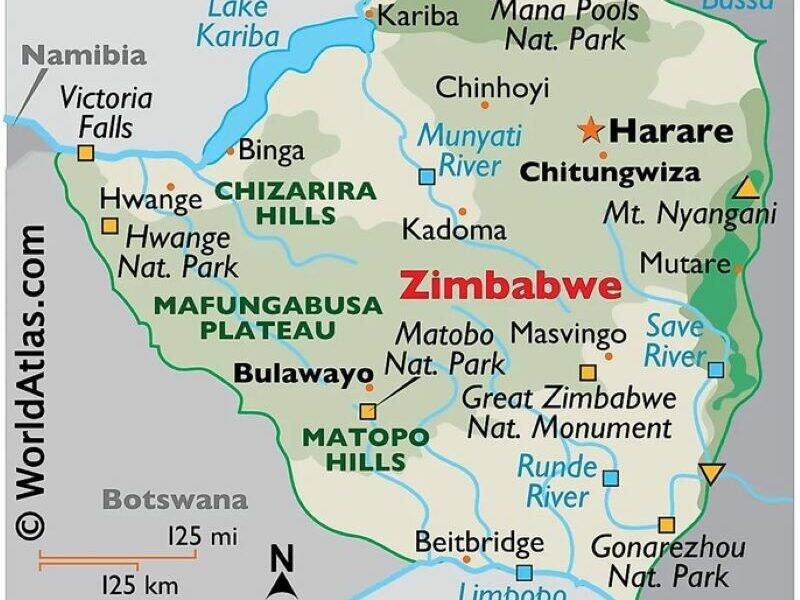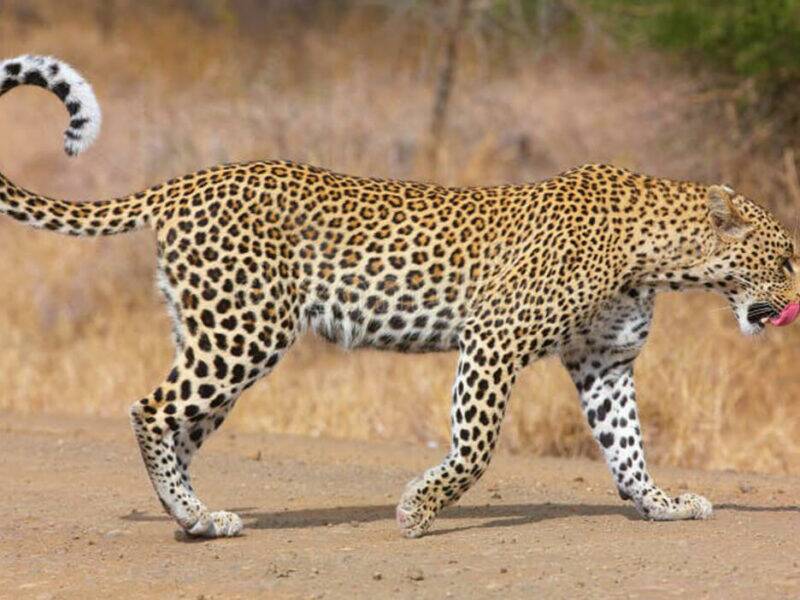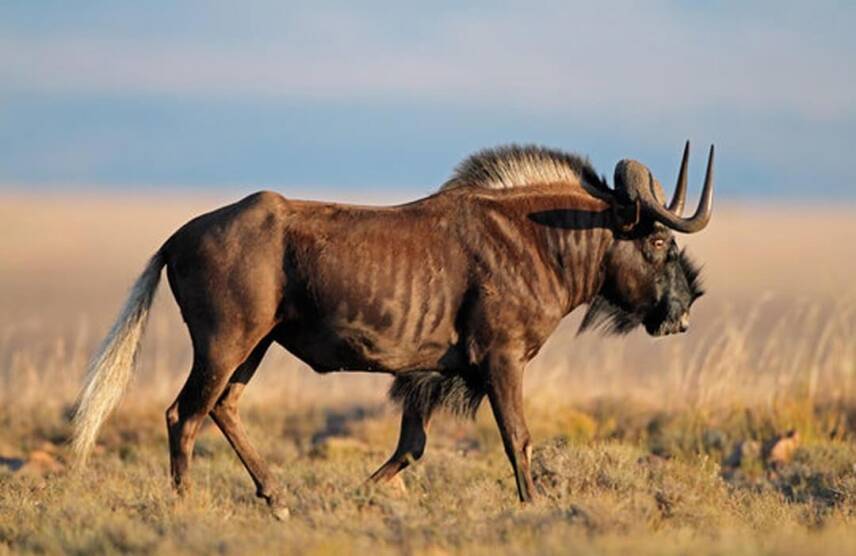As a landlocked southern African country, Zimbabwe might not be the first choice when planning an African game hunting adventure, but hunting in Zimbabwe is a big industry and offers hunters the option of both African plains game and big game hunting opportunities.
However, Zimbabwe offers more than just the safari hunting affair, there are tourist attractions and activities to keep the family and friends entertained and occupied while you’re out on an Africa safari hunting trip in Zimbabwe.
[DYNAMIC-BLOGTABLEOFCONTENT]
Zimbabwe as a Game Hunting Destination
Like many African countries Zimbabwe has known its years of conflict and struggle, however, their game hunting industry has always survived and thanks to conservation efforts, a hunting safari in Zimbabwe is still available to hunters wanting to brave the African bush.
The industry is well controlled and regulated, whether by the government, community initiatives, or private ownership of safari hunting ranches. Hunting in Zimbabwe has been around since the first men to walk the lands and given the efforts put in, it looks set to continue for generations to come.

Hunting in Zimbabwe
Animals to Target on Hunting Safari in Zimbabwe
Leopard (Panthera pardus)
A striking big cat and member of the Big 5, this big game hunting prize is certainly a beautiful trophy opportunity. These cunning and alert big cats are known to watch the hunters watching them! Zimbabwe is the only African country to allow for the use of dogs while leopard hunting.

Lion (Panthera leo)
The traditional Africa safari hunting trophy is available on limited and strictly controlled licenses for those hunting safari in Zimbabwe and lions remain a sought-after African dangerous game trophy.
Nile Crocodile (Crocodylus niloticus)
A beast of many an African waterway and an exciting big game hunting opportunity, the Nile crocodile can be a challenging target for big game hunting in Zimbabwe. Requiring precise shot placement and as little noise as possible, the crocodile can be a test of the skill and patience needed for an Africa safari hunting trip.
Cape Buffalo (Syncerus caffer caffer)
Known as “Africa’s Black Death,” the Cape buffalo may not be the prettiest of targets for a hunting safari in Zimbabwe, but they can provide excitement and maybe a test of your toughness. Aggressive, grumpy, and known to hold a grudge, these tough animals test not only a hunter’s skills but also his patience and nerves!
Hippopotamus (H. amphibious)
These barrel-bodied herbivores are deceptively fast (yes, on land too) as well as being good swimmers, and can remain underwater for prolonged periods. Hippo hunting in Zimbabwe can take place at almost any of the country’s famous rivers and water bodies.
Nyala (Tragelaphus angasii)
A spiral-horned antelope native to areas in southern Africa, the nyala is a unique member of the plains game available on many an Africa safari hunting trip in Zimbabwe. Males are much larger than females and are the only ones with those prize horns.
Lichtenstein’s Hartebeest (Alcelaphus buselaphus lichtensteinii)
A territorial game hunting antelope trophy with horns that can reach over 1,5 feet, the Lichtenstein hartebeest has very good eyesight for their species and when spooked or alarmed they will rapidly shake their head up and down.
Wildebeest
The blue wildebeest (C. taurinus) counts Zimbabwe as one of its native territories and they can inhabit a variety of landscapes but prefer short grassed areas. The black wildebeest (C. gnou) can be found throughout southern Africa and prefers grassland or Karoo-type scrubland areas both at high and lower altitudes.
Zebra (Equus quagga)
Game hunting for these horse–like grazers means targeting one of the most recognizable animals on the continent, the zebra. Their stripe pattern is known to be hereditary depending on the genes.
Serval (Leptailurus serval)
A medium-sized wildcat that is available when hunting in Zimbabwe, the serval is a solitary cat and has the longest leg-to-body ratio of similar-sized wildcats. They are known for their golden buff-colored coats with black striping and patterns.
Warthog (Phacochoerus africanus)
Found in open habitats and surviving in arid areas, the warthog is a tough swine to tackle when hunting in Zimbabwe, with trademark tusks measuring 10–25 inches.
Guidelines for an Africa Safari Hunting Trip in Zimbabwe
- Zimbabwe has a year-round game hunting season with no definitive start or end; however, the months of May–October are strongly suggested due to the milder weather.
- Every hunter must possess a permit granted to them by the Zimbabwe Parks and Wildlife Management Authority, and these permits must be applied for before the start of the hunting safari in Zimbabwe.
- Big game hunting targets like leopards, lions, elephants, and crocodiles require their own special permit.
- The use of artificial light is allowed for big cat hunting in Zimbabwe.
- Bowhunting is legal in Zimbabwe, however, this is only allowed on private or tribal land and no bowhunting may take place on government land under any circumstances.
- No crossbows and longbows are illegal.
- Recommended caliber for hunting in Zimbabwe is .375 or bigger depending on the target and the hunter’s abilities.
Classification of Game Hunting Areas
Government
State concessions are run by the Zimbabwe National Parks and Wildlife Authority (ZNPWA) and this body also controls the quotas and areas that fall under it. Government areas for hunting in Zimbabwe include the Matetsi, Tuli, Chewore, and Makuti hunting blocks.
Private
A concern with private game hunting areas is that some were seized in the land grab and the paperwork for them is void, with hunts on these lands can lead to trouble with a hunter’s home country. Popular private areas for hunting in Zimbabwe include the Bubye and Save conservancies.
Tribal
These areas for a hunting safari in Zimbabwe are controlled by the Communal Areas Management Program for Indigenous Resources (CAMPFIRE) and allow for communities to form their own conservancy area which is then left to hunting operators. CAMPFIRE is also in control of the game hunting quotas issued for their land.
Popular Areas for Hunting in Zimbabwe
Zambezi Valley Hunting Concessions
This game hunting area is rich in opportunities for hunting safari in Zimbabwe, from big game hunting to plains game and even crocodiles in the Lake Kariba area. The Zambezi region is home to lions, leopards, elephants, and some of the largest herds of Cape buffalo anywhere in Africa.
Zimbabwean Lowveld
An area bordering South Africa, this region is known for the bountiful big game hunting of elephants as well as hippo and nyala populations. The Save and Bubye Valley conservancies fall under this region.
Zimbabwe’s Climate and Game Hunting Conditions
The climate you face when hunting in Zimbabwe will depend on the game hunting region in which you find yourself. Due to Zimbabwe’s location, its main climate can be described as subtropical with the southern areas being dry and hot, like in the Zambezi region known for its heat and aridity. The eastern highland region is known for having more rainfall and cooler temperatures with Zimbabwe’s central plateau receiving frost in the winter months.
Storms are rare but drought is a recurring concern that can affect safari hunting opportunities due to animal loss because of drought. November to March is the traditional rainy season and due to the state of road infrastructure in certain areas, plans for hunting safari in Zimbabwe may need to change location.
Traveling to Zimbabwe – Paperwork and Procedures for your Africa Safari Hunting Trip
Travel Documents
All foreigners entering Zimbabwe require a valid passport that will remain valid for 6 months post departure as well as proof of a round trip ticket showing exit from the country. Entry visas are required for everyone, and you can contact a Zimbabwean embassy or your outfitter with any queries about this process.
Firearms Matters
There is no limit to the number of firearms that can be imported to Zimbabwe, handguns and powder rifles are allowed but like many African countries, no semi-automatic or military-style weapons are allowed. Game hunting by bow is allowed only on private or tribal land and while there are no caliber minimums, a .375 or bigger is recommended depending on the trophy target.
Before the hunt, the hunter must complete the Certificate to Possess Firearms for each weapon and all ammunition in their possession. This form alongside your letter of invitation must be presented at the Customs Office before they will issue a firearms permit.
If you’re traveling via South Africa, you will also need to comply with the firearms procedure at OR Tambo which includes stopping at the SA Police Services counter with your travel documents and firearms papers for a customs check and permit issuing.
Accommodation Facilities on your African Hunting Safari
The accommodation you’ll experience on a hunting safari in Zimbabwe will depend on your choice of safari hunting package. The most common form of hospitality is a traditional tented game hunting lodge with outdoor facilities, while private conservancies can offer more resort-like accommodations.
Even tented lodges will normally offer facilities like swimming pools alongside hot running water, flushing toilets, and standard bathroom amenities.
Air Travel and Money Matters
Most incoming air travel arrives at Robert Gabriel Mugabe International Airport in the Zimbabwean capital of Harare. From here charter flights can be arranged to the various game hunting areas, it is strongly advised that you arrange that your outfitter or PH meet you at the airport to assist with the firearms process and ensure that charter flights are properly arranged.
When on an Africa safari hunting trip, it’s advised that you bring your cash with you (pre-exchanged) or stick to using bank cards as most established lodges and tourist attractions will have card facilities available. While dollars are accepted in certain areas; others may require local currency, and these exchanges aren’t the most reliable.
Health Checks when Hunting in Zimbabwe
Zimbabwe carries a malaria risk, especially in the Zambezi Valley, so malaria precautions like medications are advised. If traveling through a Yellow Fever region, you will require a Yellow Fever vaccination and certificate.
Tourist Attractions and Activities
One might not think of Zimbabwe as a tourist destination, but the southern African country has some impressive natural beauty and opportunities for tourists to experience and support these natural wonders. So, whether you’re participating in the Africa safari hunting trip or tagging along as a family member, you will most likely end up experiencing the natural world on offer.
Victoria Falls
Probably the most iconic feature of Zimbabwe, the opportunities to experience one of the 7 Wonders of the Natural World include bungee jumping, helicopter and microlight flights, and rafting.
The Great Zimbabwe Ruins
The ruins located in Masvingo are a UNESCO World Heritage Site and are the most famous of the ancient ruin sites found across the country. It features intricately built stone walls reaching 16 feet in size as well as the ruins of what is believed to be an ancient royal palace where Zimbabwe’s old rulers sat in power, ruling over almost 20,000 people.
Mana Pools National Park
A mix of grassland and floodplains, Mana Pools is home to both the Zambezi River and Rift Valley. The best way to experience this natural landscape is via boat cruise along the Zambezi River or propelling yourself along the Mana Canoe Trail.
“Mana” means four in the Shona language and refers to the four pools found within the park, the wildlife in the pools area ranges from lions and wild dogs to some of the largest populations of hippo and Cape buffalo.
Binga Beach
Zimbabwe’s inland beach is accessible by its own charter plane airstrip. Found in Matabeleland North and home to the Tonga people, Binga is a destination filled with culture, great food, and activities involving fishing, boating, and other beach adventures.
Kariba Dam
The largest man-made lake worldwide, Kariba can be found roughly halfway down the Zambezi River and serves as a major source of Zimbabwe’s energy generation. This attraction is home to sunset cruises, fishing, and “game drives” by boat.
Matapos National Park
Another UNESCO World Heritage Site, Matapos is home to thousands of years of indigenous rock art as well as the grave site of the late Cecil John Rhodes. Matapos was christened with its name by Mzilikazi, King of the Ndebele, and means “bald heads”, likely referring to the many rocks found in the park.
Hunting in Zimbabwe: Affordable, Enjoyable and Diverse
An Africa safari hunting trip in Zimbabwe can be a budget-friendly option that still delivers game hunting opportunities and tourist attractions. Big game hunting in Zimbabwe dates back well into history, and while the country has undergone many a struggle and changes, the industry remains well conserved and supported. Hunting safari in Zimbabwe might be just what you’re looking for if you want a destination providing both safari hunting and activities for those along for the trip.
Learn more about Zimbabwe and what it has to offer in terms of big game hunting in a recent blog about Hippo Hunting in this fascinating destination.
Author: A. Baker
